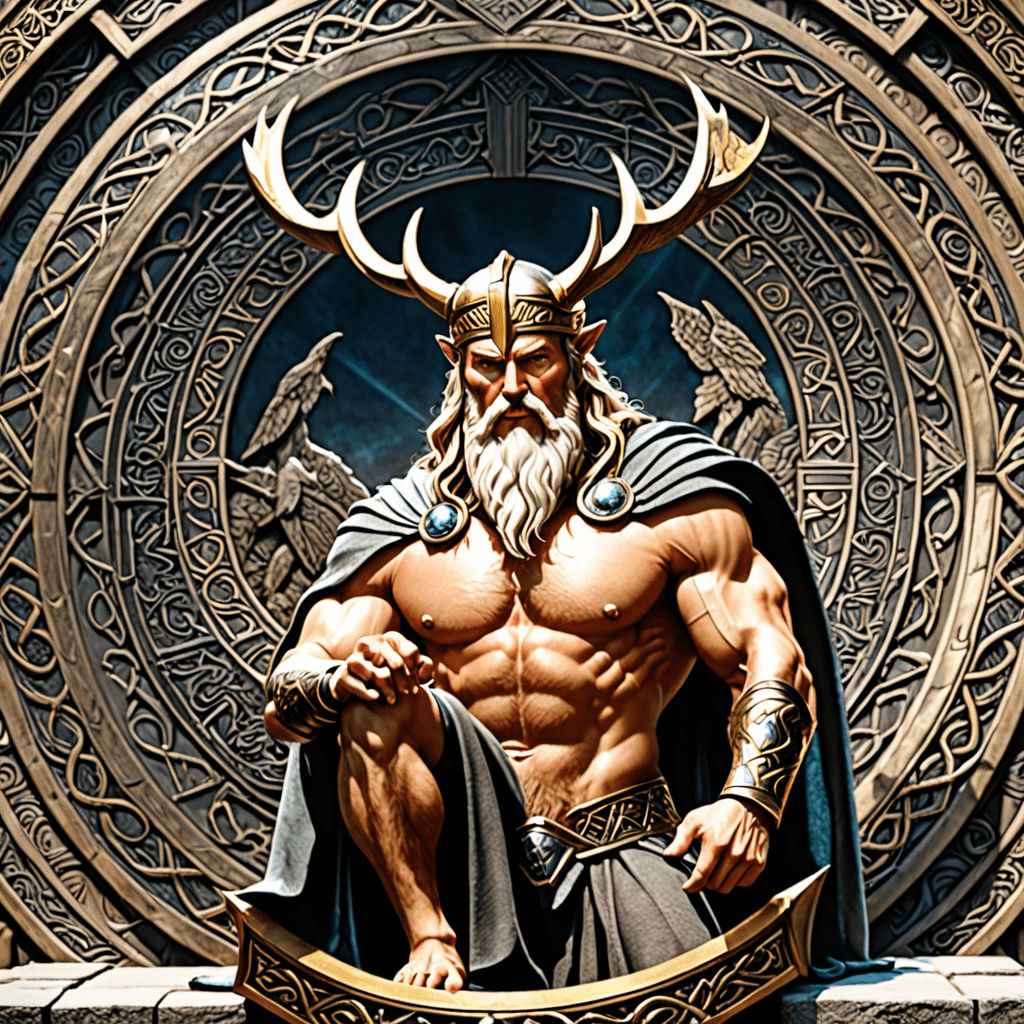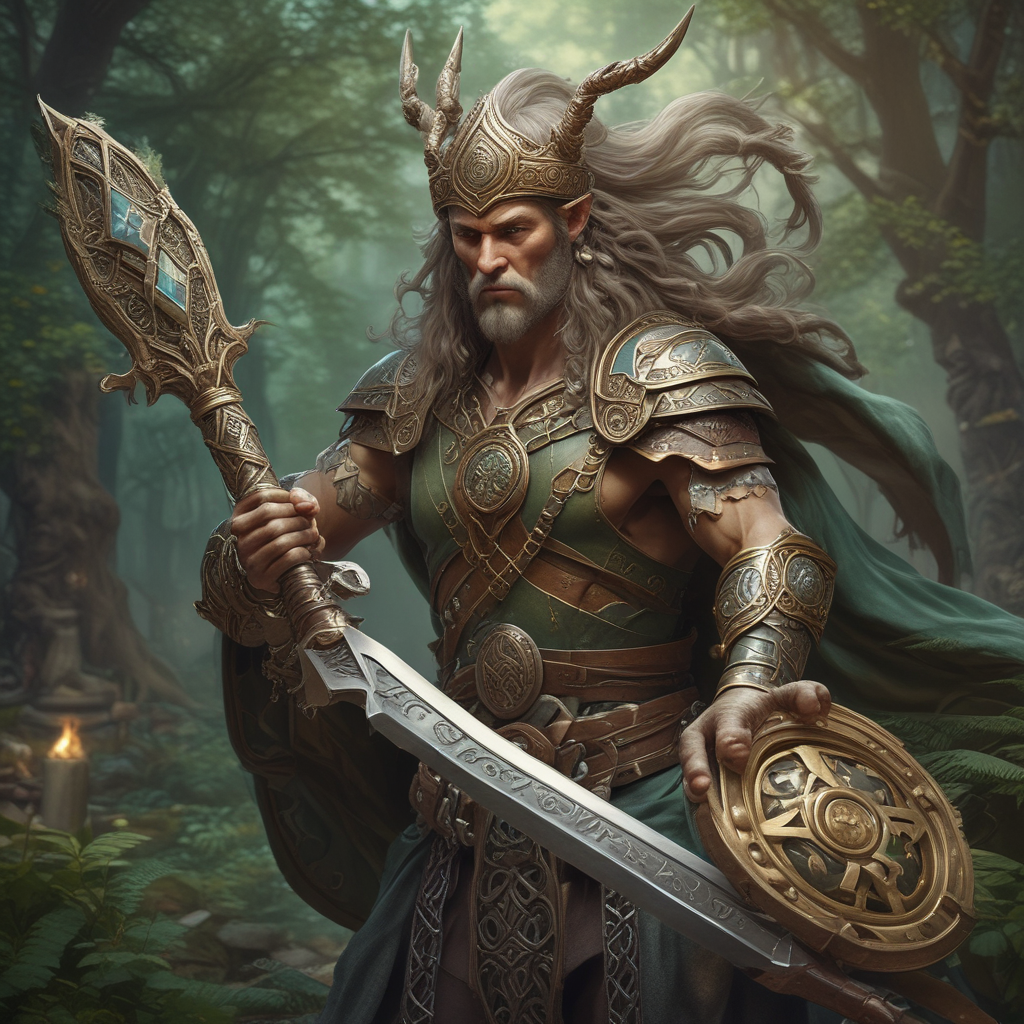The Concept of Wisdom in Norse Mythology
Wisdom holds a significant place in Norse mythology, shaping the beliefs, actions, and outcomes of the gods and beings within this rich tales environment. Let’s explore the essence and manifestations of wisdom within the Norse mythological framework.
1. The Pursuit of Wisdom
In Norse mythology, wisdom is revered and sought after by gods, beings, and humans alike. The most prominent figure associated with wisdom is Odin, the Allfather. Odin’s craving for wisdom led him to sacrifice an eye at the Well of Urd in exchange for immense knowledge, transcending the physical realm to obtain spiritual insights. This act underscores the idea that wisdom often requires sacrifice and a willingness to delve deep into the unknown.
2. Sources of Wisdom
Wisdom in Norse mythology can be gleaned from various sources, including experiences, interactions, and contemplation. The Runes, ancient Norse alphabetic symbols, hold mystical powers that convey wisdom when interpreted by those attuned to their meanings. Additionally, the Norse concept of Wyrd, or fate, emphasizes the interconnectedness of past, present, and future, guiding beings to make wise decisions based on an understanding of cosmic forces.
3. Wisdom in Guidance and Decision-Making
Wisdom plays a crucial role in guiding the actions and decisions of gods and heroes in Norse mythology. The god Tyr demonstrates wisdom through his sacrificial act of binding the monstrous wolf Fenrir to protect the gods, showcasing the balance between courage and strategic thinking. Similarly, the Norns, weaving the intricate web of fate, embody wisdom by understanding the past, present, and future simultaneously, advising beings on paths to follow.
4. Legacy of Wisdom in Norse Mythology
The legacy of wisdom in Norse mythology endures through tales of divine prophecies, sagacious advice, and the enduring quest for knowledge. Characters like Odin, Frigg, and Mimir are revered for their wisdom and discernment, inspiring mortals to seek enlightenment beyond mere earthly concerns. The lessons and insights from Norse mythology continue to resonate, emphasizing the importance of wisdom in navigating the complexities of existence.
In conclusion, wisdom in Norse mythology transcends mere intellect, encompassing spiritual insights, cosmic interconnectedness, and the pursuit of transcendent knowledge. The essence of wisdom in this rich tapestry of mythos serves as a guiding light for beings, instilling reverence for the ancient truths that shape both the divine and mortal realms.
Frequently Asked Questions about the Concept of Wisdom in Norse Mythology
What role does wisdom play in Norse mythology?
Wisdom holds immense significance in Norse mythology as it is associated with gods like Odin, who is revered for his wisdom and knowledge. It is often portrayed as essential for making crucial decisions and gaining a deeper understanding of the world.
How is wisdom personified in Norse mythology?
In Norse mythology, wisdom is personified through characters like Odin, known as the Allfather, who sacrificed an eye at the Well of Urd to gain wisdom. The goddess Saga, representing storytelling and wisdom, is also revered among the Norse deities.
What are the sources of wisdom in Norse mythology?
Wisdom in Norse mythology is gained through various means, such as seeking knowledge from the Well of Urd, engaging in deep reflection and contemplation, or learning from the experiences of others, including the wise Jotunn Vafthrudnir.
How does wisdom influence the actions of gods and beings in Norse mythology?
Wisdom often guides the actions of gods and beings in Norse mythology, impacting decisions related to destiny, battles, and the overall order of the cosmos. Odin’s wisdom, for instance, enables him to navigate complex situations and foresee the future.
Is wisdom considered a divine attribute in Norse mythology?
Yes, wisdom is



